* Photos: bianet
Click to read the article in Turkish / Kurdish
With the exchange rates spinning out of control amid expectations that the Central Bank would cut the policy rate and with consumer inflation standing already at 20 percent, the Monetary Policy Committee of the Central Bank indeed cut the policy rate yesterday (November 18).
The policy rate has been reduced by 100 base points to 15 percent. For the first time, the exchange rate of the US Dollar has exceeded 11 Turkish Lira. The effects of all these developments in the economy are felt by citizens in their daily lives, in their shopping routines.
The gap between the prices at markets and bazaars is significant. With some products, the difference between the prices can be as high as 2-fold. While a kilo of tomatoes is sold for 5 lira at a town bazaar, it is sold for 10 lira at some markets. As for the garlic, a bundle of garlic is sold for 10 liras at bazaar while a kilo of garlic may cost as high as 41 lira at market.
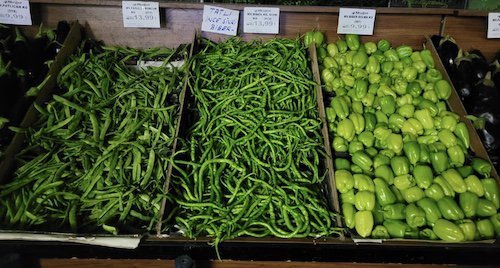
When citizens want to buy bananas from the bazaar, they can do it by paying 10 lira for a kilo while it costs 12 lira at the market.
A kilo of carrots is sold for 3 lira at bazaars and for 7 lira at markets, a kilo of mandarin oranges is sold for 3 lira at bazaars and for 8 lira at markets, a kilo of zucchinis is sold for 3 lira at bazaars and 13 lira at markets, a kilo of olives is sold for 22 lira at bazaars and 36 lira at markets and a kilo of anchovy is sold for 12 lira at bazaars and 35 lira at markets.
'We stock up'
When we speak to a citizen buying her groceries from a chain market in Bursa province, she explains her condition as follows:
"I am 38 years old and a mother of two. Even though both my husband and I work, the increase in prices is still giving a hard time to our pockets. We have started to buy less now. Following the price increases, I have started to buy one kilo of potatoes, instead of two.
"I am now also thinking twice before buying hygiene products such as toilet paper. In case of a potential price increase, we are trying to get by by stocking up products such as oil, sugar and tea."
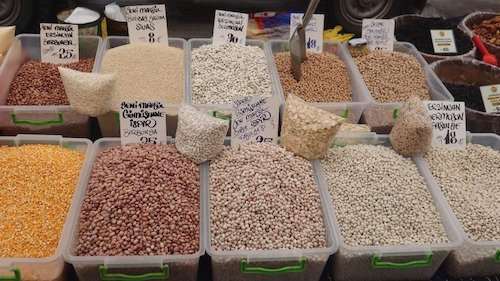
'We buy food by piece, not in kilos'
A citizen who comes to the town bazaar in İstanbul's Çengelköy and prefers not to be named says that he is having financial trouble:
"As a 56-year-old pensioner, I cannot make any sense of the price increase that we have been experiencing this year. Due to the price policy of the government, citizens are once again having a hard time making a living. While all these are known, why aren't any measures taken?
"The price tags change at the market every week, prices are on the increase, we now even shy away from coming to the bazaar. Besides, there doesn't seem to be an inspection. Like our mothers, instead of buying kilos of fruit and vegetables, we are buying by the piece again.
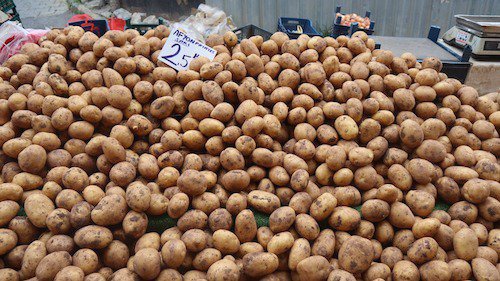
"I am especially sad about crowded families, thinking about what they are doing. I wonder how our top state officials feel about this! I read the economy sections, I read that inflation is on the increase and I see its effects in my life. But my pension does not increase at the same rate.
"Unfortunately, we - middle income citizens - cannot spend enough for life. Our state should say 'Stop' to this now."
'Customers unhappy, salespeople unhappy'
When some products are concerned, their prices at bazaars are almost as high as markets. Salespeople at bazaars are also unhappy with the price rises. A salesperson who prefers not to be named says:
"Price increases are natural. They tolled the death knell for farming and agriculture; fuel oil costs 10 lira per liter and gas costs 7 lira.
"I sell quinces. I buy it for 6.50 lira and sell it for 7.50 lira, including the bag. My profit is not 1 lira here. I make a profit of 20 lira per fruit box. A profit of 100 lira a day means one daily wage. What should we do? What should we do for a living now? Citizens are bargaining with us, saying, 'I don't have money, can you sell it on credit?' Customers are unhappy, so are salespeople." (MFK/AE/SD)





.jpg)
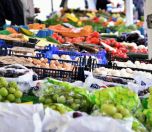






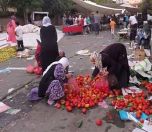
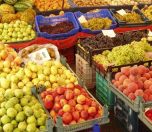
sa.jpg)
.jpg)